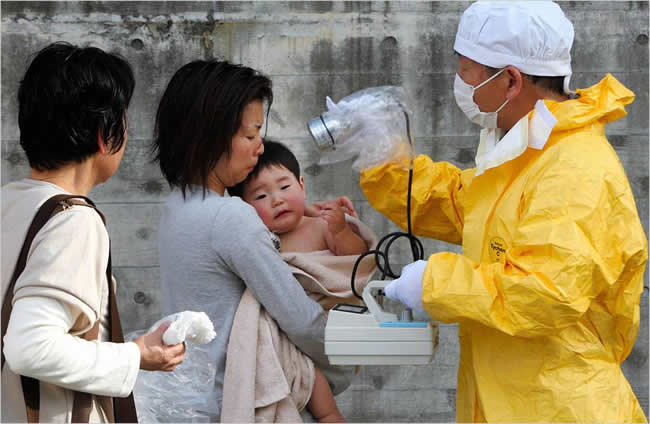
PRESS RELEASE - 13 March, 2011
Fukushima – It Must Not Happen Here
As the 25th Anniversary of the Chernobyl nuclear disaster approaches, the world has been transfixed once again by the unfurling of a nuclear catastrophe, this time in Japan. The plight of thousands living in the shadow of Fukushima and of those evacuated is a terrible human and environmental tragedy.
BANNG’s Chair, Andy Blowers, voiced the concern of people here for what is happening in Japan and what it means for nuclear plans in Britain: ‘We can only look helplessly on at the sufferings of those affected by the earthquake and tsunami which overwhelmed Japan who are now facing a possible nuclear catastrophe. We are desperately sorry for the victims of the disaster in Japan and we are resolved that it must never happen here.
The nuclear industry will argue that it cannot happen here – the power stations planned for Britain are much safer, they are well regulated and we do not have massive earthquakes or tsunamis. But, Japan’s nuclear stations were declared safe and earthquake-proof – until Fukushima. Confidence in the pronouncements of the nuclear industry, which was never high, has now been totally shattered.
Although there are obvious differences, the similarities should not be ignored. The new nuclear stations planned for England and Wales are almost all, like Fukushima, in coastal locations. Some, like Bradwell, are very low-lying. With rising sea levels and climate change making storm surges more likely, Bradwell is very vulnerable to being overwhelmed by the sea. Even tsunamis triggered elsewhere cannot be ruled out, as the Government’s own siting assessments recognised. And seismic activity is not unknown – the Colchester earthquake of 1884, the biggest in the country for 400 years, though far smaller than that in Japan, nevertheless caused widespread destruction in the villages south of the town making many homeless.
And then there’s the problem of evacuation. In the case of a meltdown or other major incident, it would be difficult to evacuate the population. As BANNG has pointed out emergency planning measures are utterly rudimentary. Given the nuclear industry’s predisposition to secrecy and letting information out slowly (as in Japan), it may prove difficult to avert a total catastrophe. We would face the prospect of the countryside and large towns like Colcheter, Maldon and Clacton being eerily deserted, not just for a few days but possibly for years.
It must be stressed that an event at Bradwell comparable to Fukushima is very, very unlikely. But even the best-constructed systems can fail and human beings can make mistakes. It follows, as previous disasters have shown, a catastrophe can never ever be totally ruled out. If it occurs, then the consequences are devastating.
The only way to avoid the possibility of another Chernobyl or Fukushima is to abandon the nuclear folly. We do not need it; it is simply far too dangerous. BANNG takes no pleasure in seeing its worst fears come true in Japan. But, it will make us redouble our efforts to make sure a Fukushima does not happen at Bradwell.
[ENDS]
Notes to Editors:
For further information, please contact:
Professor Andrew Blowers E-mail: a.t.blowers@open.ac.uk
Tel.: 07932.739677





No comments:
Post a Comment